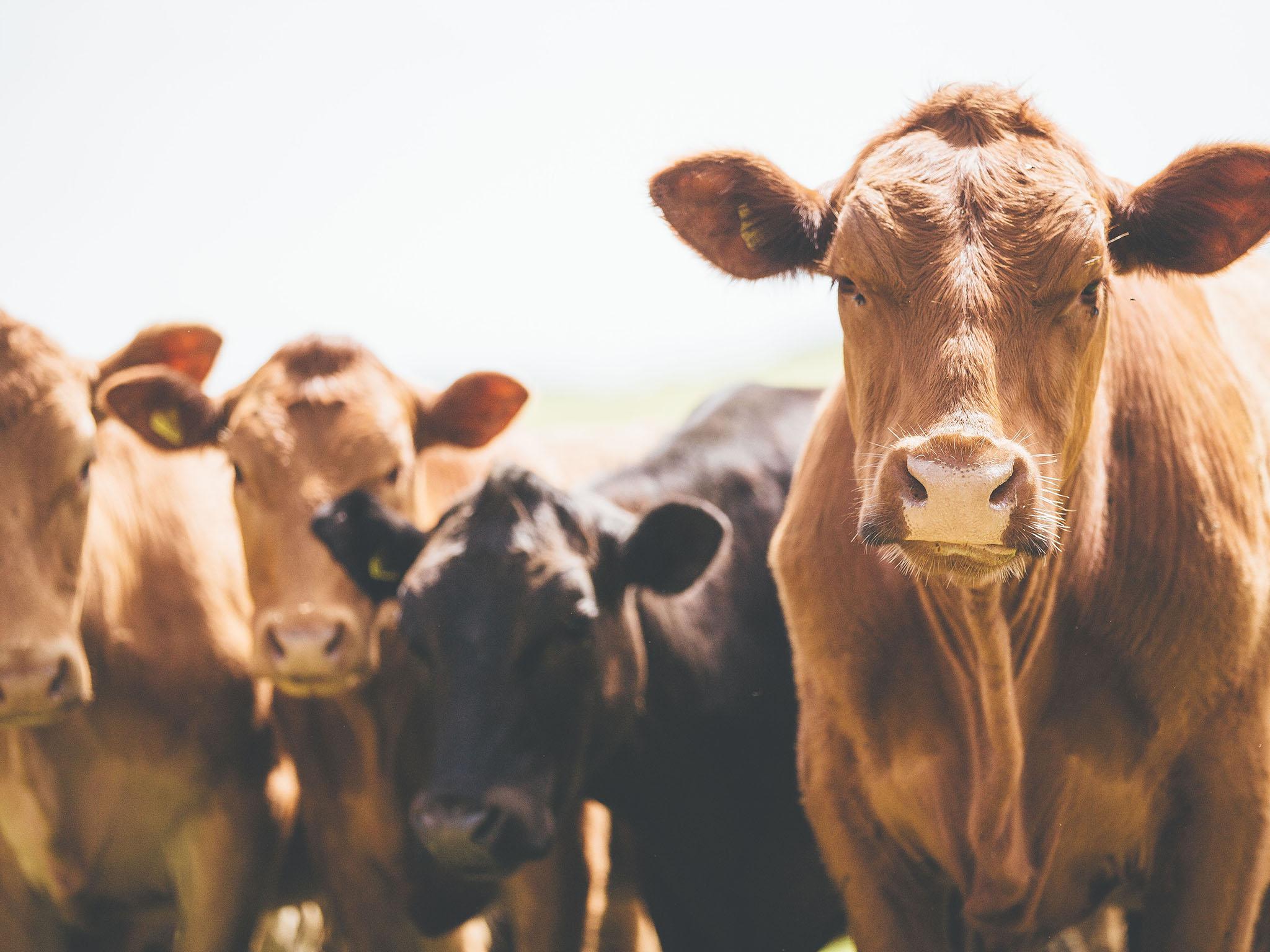Irish farmers to create seaweed eating 'supercows' in bid to fight climate change
Change of diet could reduce methane emissions by 99%, researchers claim

Your support helps us to tell the story
From reproductive rights to climate change to Big Tech, The Independent is on the ground when the story is developing. Whether it's investigating the financials of Elon Musk's pro-Trump PAC or producing our latest documentary, 'The A Word', which shines a light on the American women fighting for reproductive rights, we know how important it is to parse out the facts from the messaging.
At such a critical moment in US history, we need reporters on the ground. Your donation allows us to keep sending journalists to speak to both sides of the story.
The Independent is trusted by Americans across the entire political spectrum. And unlike many other quality news outlets, we choose not to lock Americans out of our reporting and analysis with paywalls. We believe quality journalism should be available to everyone, paid for by those who can afford it.
Your support makes all the difference.Could seaweed eating supercows help reduce greenhouse gas emissions and save the world from climate change?
Irish farmers hope so and have welcomed the opportunity to investigate a 2016 study that claims feeding cows small amounts of seaweed along with their normal diet of grass can reduce methane emissions by up to 99 per cent.
The study, by a team of researchers at James Cook University in Queensland, Australia, found in live trials with sheep that recorded methane levels fell between 50 - 70 per cent when they ate a diet including 2 per cent seaweed.
According to the Irish Times, the Irish Farmers’ Association has welcomed the study and said the research provides the opportunity to continue to build on Ireland’s “sustainable grass-based model of food production”.
Thomas Cooney, the association’s environment chairman, called on Irish scientists “to immediately investigate the potential for this research in an Irish agriculture context, and in the context of the opportunity that may exist for indigenous seaweed production”.
Irish politician Michael Fitzmaurice who represents Roscommon–South Leitrim, also called for further research into the implications for Ireland.
Speaking to Irish farming publication AgriLand this week, Mr Fitzmaurice said: “I would like to see this research being carried out here; there are huge possibilities with regard to the seaweed industry in Ireland and the Department of Agriculture, Food and the Marine should look into this further.
He added: "We are an island nation with plenty of coastline and if we can develop and improve our seaweed industry it could be a big bonus for our economy – more analysis into this exciting new research must take place as soon as possible.”
The Australian study was originally based on the experience of a Canadian farmer who realised that his cattle that ate washed up seaweed were healthier and produced “rip roaring heats” with longer mating cycles than those that did not.
Canadian researchers Rob Kinley and Alan Fredeen subsequently proved the findings in 2014, and also suggested the cattle produced significantly less methane.
The pair then teamed up with Professor of Aquaculture Rocky De Nys in Australia to expand the study which was a collaborative effort including the Australia’s Commonwealth Scientific and Industrial Research Organization.
The research team tested how 20 species of seaweed reacted with bacteria found in cows’ stomachs. They found that one species of red algae called Asparagopsis Taxiformis was particularly effective in reducing cows’ methane emissions and if it made up just 2 per cent of the animal’s diet, it could reduce emissions by 99 per cent.
A single cow releases between 70 and 120 kg of methane a year. The greenhouse gas is thought to be 25 times more damaging to the environment than carbon dioxide over a one hundred year period.
Join our commenting forum
Join thought-provoking conversations, follow other Independent readers and see their replies
Comments